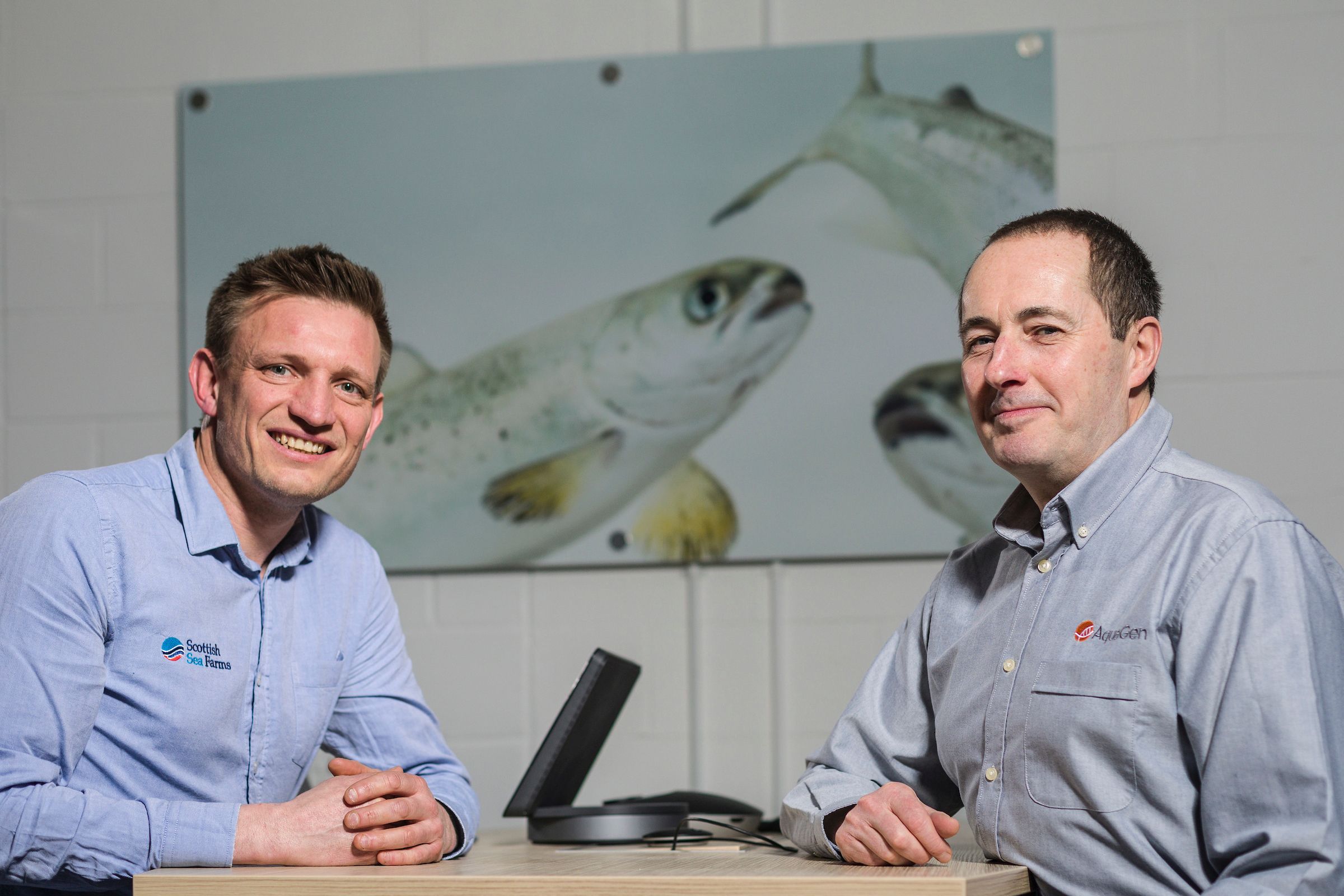AquaGen buys Scottish salmon hatchery

AQUAGEN, the world leading salmon breeder and supplier of eggs, has signed a deal to buy Scottish Sea Farms’ freshwater hatchery at Holywood near Dumfries as part of a long-term strategic investment that will further improve fish welfare in Scotland.
The acquisition follows a successful trial production of eggs under licence in autumn 2018 and will enable the Norwegian owned company to offer Scotland’s salmon farmers a reliable supply of eggs from locally farmed AquaGen broodstock, increasing food security.
It will also facilitate a targeted breeding programme to identify the genetic and biological traits most suited to performing well in Scottish farming conditions, resulting in robust fish stocks and a high quality product for market.
Welcoming the news, Cabinet Secretary for the Rural Economy Fergus Ewing said: ‘AquaGen’s investment speaks volumes of the confidence from the sector of doing business in Scotland and supports the aims of Scotland’s 10-Year Farmed Fish Health Framework, helping to improve the security of Scotland’s ova supply.’
AquaGen CEO Nina Santi said: ‘We are committed to providing our customers in Scotland with a secure supply of eggs and this latest investment opens up the possibility of us supplying these eggs from locally grown broodstock.
‘We’re planning a series of upgrades to the existing facilities at Holywood, using Scottish suppliers as much as possible, then we will go into full production later this year.
‘Deliveries will be from November to June initially; longer term, we hope to extend to year-round production of up to 50 million eggs annually.’
Overseeing production and research will be AquaGen Scotland, which was established in autumn 2017, headquartered at Stirling University Innovation Park, creating two new roles.
The team has since expanded to eight, four of whom are based full-time at Holywood, with a further two new roles expected to be created at the hatchery as production develops.
Unlike coastal hatcheries, the four-acre inland hatchery at Holywood uses groundwater drawn from a series of bore holes, a system that is known for its biosecurity, quality and constant temperatures, and is therefore well suited to egg production.
Scottish Sea Farms’ head of Fish Health, Ralph Bickerdike, said: ‘This is a hugely promising development for Scotland’s salmon farmers, bringing world leading breeding expertise and technologies to bear on home grown broodstock so that their offspring can be adapted to specifically suit the Scottish marine environment.
‘This, in turn, will bring a whole host of further improvements in terms of fish welfare and product quality.’
In the four decades since the first commercial scale salmon farms were established, genetic advances have included: reducing the time that farmed salmon spend at sea, thereby minimising exposure to the natural challenges of the marine environment; more efficient use of feed per kilo of meat produced; greater resistance to common fish diseases; increased survival rates; and higher quality of product for market.
Picture: SSF\’s Ralph Bickerdike (left) and AquaGen Scotland managing director Andrew Reeve

